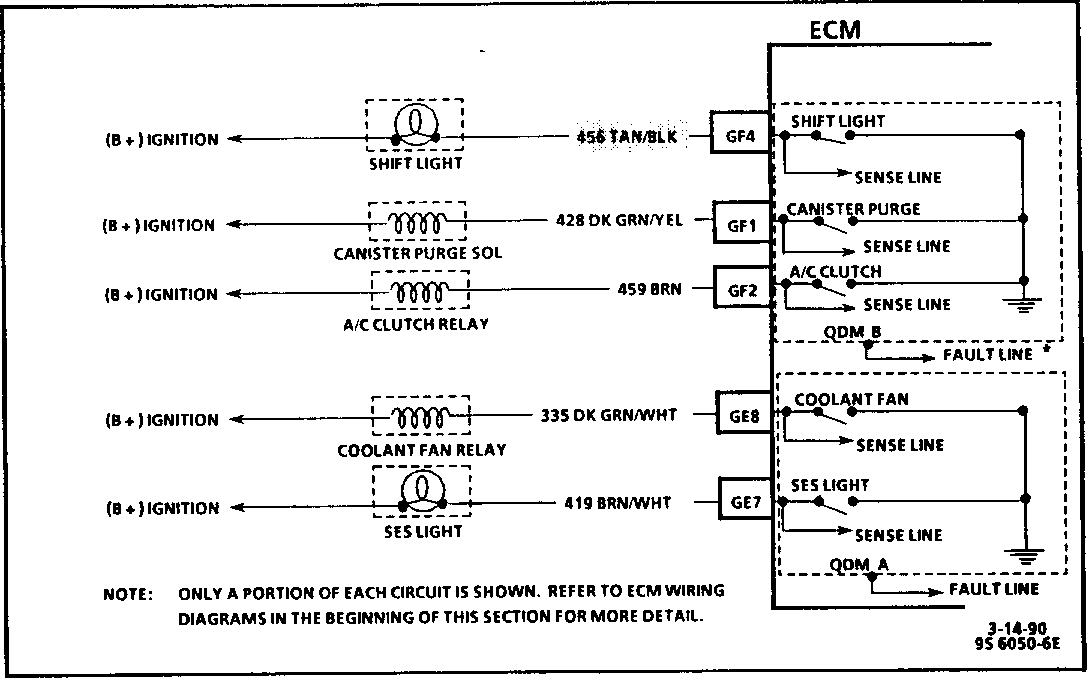SERVICE MANUAL UPDATE SEC. 6E3 DRIVEABILITY & EMISSIONS

Subject: SERVICE MANUAL UPDATE - SECTION 6E3 - DRIVEABILITY AND EMISSIONS REVISED CODE 26 FACING PAGE (1 OF 3)
Model and Year: 1990 'L' 2.3L (VIN A)
This bulletin serves to update Code 26 Facing Page (1 of 3) on Page 6E3-A-48 in Section 6E3 "Driveability And Emissions" in the 1990 "L" Service Manual equipped with 2.3L (VIN A) applications.
CODE 26 (Page 1 of 3) QUAD-DRIVER (QDM) CIRCUIT 2.3L (VIN A) "L" CARLINE (PORT)
Circuit Description:
The Electronic Control Module (ECM) controls most components with electronic switches which complete a ground circuit when turned "ON." These switches are arranged in groups of 4, called Quad-Driver Modules (QDM's) which can independently control up to 4 outputs (ECM terminals), although not all outputs are used. When an output is "ON," the terminal is grounded and its voltage normally will be low. When an output is "OFF," its terminal voltage normally will be high.
QDM's are fault protected. If a relay or solenoid coil is shorted, having very low or zero resistance, or if the control side of the circuit is shorted to voltage, it would allow too much current into the QDM. The QDM senses this and the output turns "OFF" or its internal resistance increases to limit current flow and protect the QDM. The result is high output terminal voltage when it should be low. If the circuit from B + or the component is open, or the control side of the circuit is shorted to ground, terminal voltage will be low, even when output is commanded "OFF." Either of these conditions is considered to be a QDM fault.
Each QDM has a separate fault line to indicate the presence of a current fault to the ECM's central processor. A "Scan" tool displays the status of each of these fault lines as "Low" = OK, "High" = Fault.
Code 26 is set if either QDM fault line is "High" for 20 seconds or more.

General Motors bulletins are intended for use by professional technicians, not a "do-it-yourselfer". They are written to inform those technicians of conditions that may occur on some vehicles, or to provide information that could assist in the proper service of a vehicle. Properly trained technicians have the equipment, tools, safety instructions and know-how to do a job properly and safely. If a condition is described, do not assume that the bulletin applies to your vehicle, or that your vehicle will have that condition. See a General Motors dealer servicing your brand of General Motors vehicle for information on whether your vehicle may benefit from the information.
